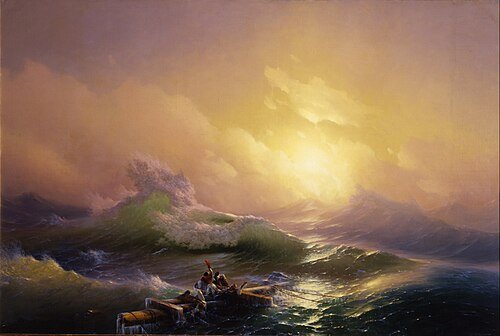Aivazovsky’s painting has haunted me since childhood. Those desperate figures clinging to wreckage whilst the ocean prepares its final assault – the image embodies everything I find compelling about human resilience against overwhelming forces.
Writing “The Ninth Wave” felt like archaeological work, excavating layers of meaning from that single painted moment. The classical form emerged naturally – iambic pentameter seemed the only structure capable of containing such elemental violence whilst maintaining dignity. Russian poetry’s musical traditions demanded similar precision in English translation.
At Fulham Library workshop, I translated aloud without prior preparation, discovering how oral performance reveals different rhythms than silent reading. The workshop leader’s praise surprised me – calling it “excellent example of classical British poetry” when I’d been thinking entirely in Russian metres and imagery.
Later revision refined the translation, though I kept that spontaneous energy from live delivery. The poem explores themes central to my work – individual defiance against societal pressures, the “superfluous person” standing firm despite chaos:
Let fate descend, let nature show its power,
The Ninth Wave comes, its judgment cold and grave —
Yet still stands man, defiant in that hour,
To face eternal war with wind and wave.
These closing lines capture what draws me to existential literature – not passive acceptance of fate, but active confrontation with forces beyond our control. The image represents my approach to writing characters who refuse to surrender dignity despite alienation or displacement.
Aivazovsky painted survival; I’ve tried to write about what makes survival worthwhile. The wave always comes, but how we meet it defines everything.
— Writer Anastasia Dubinina
